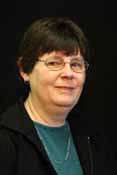Canadian Mennonite
Volume 12, No. 15
July 28, 2008
Moving forward
Prime Minister’s apology to Canada’s residential school survivors only a first step
in the healing process
OTTAWA
 |
It was the three words many aboriginal Canadians had waited decades to hear: “We are sorry.”
The words, uttered June 11 on Parliament Hill by Prime Minister Stephen Harper, were spoken towards the end of a federal government apology for Canada’s legacy of residential schools. “On behalf of the Government of Canada and all Canadians, I stand before you . . . to apologize to Aboriginal Peoples for Canada’s role in the Indian residential schools system,” Harper said during his 12-minute address, adding, “The government of Canada now recognizes that it was wrong to forcibly remove children from their homes and we apologize for having done this.”
Although there were never any Mennonite Church-run residential schools, there was at least one residential school founded by a Mennonite. Irwin Schantz, a Swiss-Mennonite from Pennsylvania, started a residential school in Poplar Hill in northwestern Ontario. The school was part of Northern Light Gospel Missions, later known as Impact North Ministries, a native outreach Schantz began in 1953 in nearby Red Lake. Although it began as a day school at the request of the local aboriginal community, it later became a residential school at the request of the government.
Merle Nisly is the CEO of Living Hope Native Ministries. Although not legally the same entity as Impact North, Living Hope stems from the same mission Schantz began. Nisly has been involved in native ministries for more than 30 years, and worked on the maintenance staff at Poplar Hill during the 1971-72 school year.
 |
“I think the founders of the school unwittingly cooperated with an agenda the government had that I really don’t think we were aware of,” Nisly said. “I don’t think the people of our organization were aware of the extent to which that system was designed to assimilate native people into mainstream Canadian culture. Maybe we should have seen it, but I don’t think we did.”
In 1997, Impact North issued an apology of its own. Nisly said the document recognized that, although staff members generally acted in good faith, the culture of the school “served to devalue First Nations culture in the minds of young people and may therefore have contributed to personal struggles and dysfunction.”
Peter Thompson of Keewaywin First Nations said he does not like talking about his experience at Poplar Hill because “it brings up some bitterness.” Attending the school until Grade 3 left him confused. Until he entered Grade 4 at a public school in Red Lake, he believed he was white.
“You don’t know who you’re supposed to be, you don’t know what sort of values you should [hold] on to,” said Thompson. “Being in a white Mennonite surrounding, the belief system was quite different, and some of the values that were pushed upon [us], it became a bit confusing. It’s taken a lot of years just to try to make an adjustment to what [my] values are as a native person.”
Goyce Kakegamic, an Oji-Cree who lives in Sandy Lake, Ont., said “the corporal punishment was overdone” at Poplar Hill. He attended the school for two years in the mid-’60s after experiencing physical and sexual abuse at other schools. He became a Christian at Poplar Hill at the age of 15, and said that is when his “healing journey” began. “I’ve been blessed,” he said, adding that the abuse he suffered does not dictate who he is.
Of the prime minister’s apology, Kakegamic said, “I hope people will start talking about what happened to them because of this, because if they don’t deal with it, it’s just like putting it in a deep freeze—it’s still there once you take it out.”
 |
As early as 1970, the Mennonite Church began taking steps to rectify relationships with Canadian aboriginals. At the conference in Winkler that year, Menno Wiebe, then executive director of Mennonite Pioneer Missions (known today as Native Ministry), led delegates in a litany of confession.
A new resource package produced by MC Canada, entitled “Reaching Up to God Our Creator,” was launched at the MC Canada/USA People’s Summit for Faithful Living. Two years in the making, the package aims to “build bridges between aboriginal and non-aboriginal cultures,” said Edith von Gunten, who, along with her husband Neill, co-directs the Native Ministry program.
Neill von Gunten described the prime minister’s apology as “long overdue,” adding, “An apology needs to be backed up by actions.”
One of the best things Canadian Mennonites can do, he said, is listen to the stories coming out of the Truth and Reconciliation Commission, a government initiative that is holding public hearings to hear the stories of those aboriginals affected by residential schools. Hearing the stories of Aboriginal Peoples will lead to a better understanding among non-aboriginals, he said. “We need to listen. Listening can bring about healing and hope.”